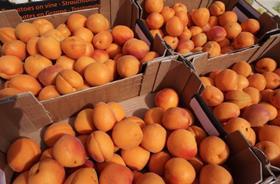
This week's annual 'Pêches et Abricots de France' seminar brought together nearly 90 business leaders in Carry-le-Rouet to set out the future of the AOP for peaches and apricots, France's main stonefruit association of producer organisations.
Topics included the 'orchard of tomorrow', relationships with customers and future communication strategies.
Concerning production, the aim is reportedly to expand the technical projects already begun, including defending the use of active substances essential for production, while continuing to build an 'agroecological' model.
The AOP also revealed that it would boost collaboration with the research network to select resistant varieties that were adapted to climate change and met taste expectations. The Ecoresponsible Orchards charter was set to be adapted, it stated, as was the Apricot Quality Plan.
In partnership with various organisations, new actions were set to be launched, the association revealed, including creating recommendations on carbon, comparing economic performances, increasing the sharing of experiences on new modes of conduct and mechanisation, relaunching advanced training in arboriculture, and securing production.
An “R&D Committee”, which is intended to increase the AOP's funding for research programmes, will apparently be created soon.
'Regarding preparations for the commercial season, following a detailed analysis of market shares, we will make proposals for promotional actions to our customers, supermarkets and wholesalers,' it stated.
'The construction of a 'Trade Marketing' policy was launched in order to offer privileged customers a relationship adapted to their needs,' the AOP explained. 'These companies will be given the opportunity to prepare for the season with the purchasing division, as well as with the quality, CSR and marketing teams. We will welcome our clients in the field to introduce them to our profession.'
Finally, the AOP's entire' communication strategy has been updated. Strong internal communication will help to mobilise producers around the “Eco-responsible orchards” label; communication tools will be made available to customers to reinforce their own messages, and communication to the general public will stress the difference of 'healthy, safe, French produce'.



